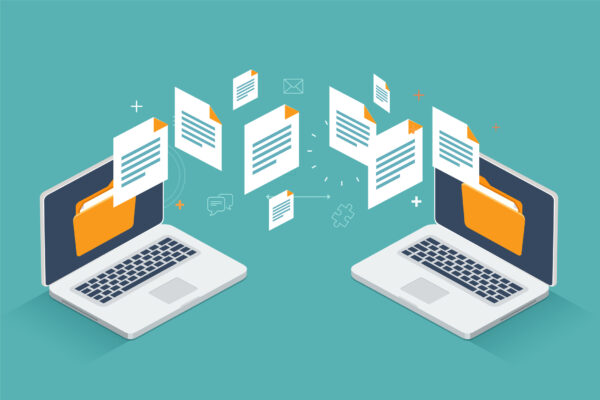 Standardizing and cleaning healthcare data can be far more complicated than it should be. In the recent webinar, How Can Modular API Solutions Improve Healthcare Outcomes? sponsored by CareEvolution, health tech experts explained some of the nuances of healthcare data management and ways in which this data can be cleaned, converted, standardized and harmonized for use across systems.
The panelists included Dr. Jeffrey Van Laere, a physician and epidemiologist, and Dr. Benjamin Berk, Chief Accountable Care Officer with CareEvolution.
Van Laere shared his frustration with the reality that a hospital or even a department may have two kinds of medical records and yet it’s tough to link them together and share data between them.
Berk offered an overview of how the healthcare data regulatory landscape has evolved and inherent challenges these well-meaning policies have created. HIPAA, for example, was created with the goal of both protecting personal health data and making it easier for patients and their physicians to share, yet HIPAA added complexities that ended up limiting data sharing.
The CARES Act in 2016 sought to prevent information blocking rules and required payers and providers to make APIs available for consumers to access their data. It has also made it easier for organizations to share data with each other. Berk added that the development of the FHIR standard by HL7 goes beyond CCDAs and made healthcare data a lot more structured.
Van Laere summarized the challenges of sharing healthcare data. He pointed to the different systems requiring different formats for data and that to get two systems to have a file type that can be shared is one challenge. Then the ability to read all these files in the same way adds further complications because not all the data is written in the same way, and that manually transcribing patient records in large volumes is not feasible for large organizations such as health systems.
Van Laere and Berk reviewed how APIs have helped transform data sharing as well as the role of the Covid-19 pandemic in highlighting coding and data sharing challenges. They presented real world examples of how healthcare data managers, engineers and developers can adopt modular API solutions to quickly and cost efficiently convert, standardize, and classify raw data for use including:
Standardizing and cleaning healthcare data can be far more complicated than it should be. In the recent webinar, How Can Modular API Solutions Improve Healthcare Outcomes? sponsored by CareEvolution, health tech experts explained some of the nuances of healthcare data management and ways in which this data can be cleaned, converted, standardized and harmonized for use across systems.
The panelists included Dr. Jeffrey Van Laere, a physician and epidemiologist, and Dr. Benjamin Berk, Chief Accountable Care Officer with CareEvolution.
Van Laere shared his frustration with the reality that a hospital or even a department may have two kinds of medical records and yet it’s tough to link them together and share data between them.
Berk offered an overview of how the healthcare data regulatory landscape has evolved and inherent challenges these well-meaning policies have created. HIPAA, for example, was created with the goal of both protecting personal health data and making it easier for patients and their physicians to share, yet HIPAA added complexities that ended up limiting data sharing.
The CARES Act in 2016 sought to prevent information blocking rules and required payers and providers to make APIs available for consumers to access their data. It has also made it easier for organizations to share data with each other. Berk added that the development of the FHIR standard by HL7 goes beyond CCDAs and made healthcare data a lot more structured.
Van Laere summarized the challenges of sharing healthcare data. He pointed to the different systems requiring different formats for data and that to get two systems to have a file type that can be shared is one challenge. Then the ability to read all these files in the same way adds further complications because not all the data is written in the same way, and that manually transcribing patient records in large volumes is not feasible for large organizations such as health systems.
Van Laere and Berk reviewed how APIs have helped transform data sharing as well as the role of the Covid-19 pandemic in highlighting coding and data sharing challenges. They presented real world examples of how healthcare data managers, engineers and developers can adopt modular API solutions to quickly and cost efficiently convert, standardize, and classify raw data for use including:
- Converting a sample of C-CDA documents to FHIR R4
- Converting a sample of Hl7v2 messages to FHIR R4
- Standardizing conditions to reference terminologies (SNOMED, ICD10, LOINC, and RxNorm)
To access a recording of the webinar How Can Modular API Solutions Improve Healthcare Outcomes, fill in the form below.
Photo: eichinger julien, Getty Images
 Standardizing and cleaning healthcare data can be far more complicated than it should be. In the recent webinar, How Can Modular API Solutions Improve Healthcare Outcomes? sponsored by CareEvolution, health tech experts explained some of the nuances of healthcare data management and ways in which this data can be cleaned, converted, standardized and harmonized for use across systems.
Standardizing and cleaning healthcare data can be far more complicated than it should be. In the recent webinar, How Can Modular API Solutions Improve Healthcare Outcomes? sponsored by CareEvolution, health tech experts explained some of the nuances of healthcare data management and ways in which this data can be cleaned, converted, standardized and harmonized for use across systems.












